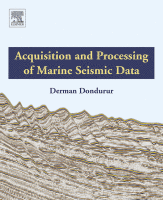Browse content
Table of contents
Actions for selected chapters
- Full text access
- Book chapterAbstract only
Chapter 1 - Introduction
Pages 1-35 - Book chapterAbstract only
Chapter 2 - Marine Seismic Data Acquisition
Pages 37-169 - Book chapterAbstract only
Chapter 3 - Noise in Marine Seismics
Pages 171-210 - Book chapterAbstract only
Chapter 4 - Fundamentals of Data Processing
Pages 211-239 - Book chapterAbstract only
Chapter 5 - Preprocessing
Pages 241-312 - Book chapterAbstract only
Chapter 6 - Deconvolution
Pages 313-363 - Book chapterAbstract only
Chapter 7 - Suppression of Multiple Reflections
Pages 365-404 - Book chapterAbstract only
Chapter 8 - CDP Sort and Binning
Pages 405-419 - Book chapterAbstract only
Chapter 9 - Velocity Analysis
Pages 421-457 - Book chapterAbstract only
Chapter 10 - Normal Moveout Correction and Stacking
Pages 459-492 - Book chapterAbstract only
Chapter 11 - Seismic Migration
Pages 493-547 - Book chapterAbstract only
Chapter 12 - Specific Methods
Pages 549-584 - Book chapterNo access
References
Pages 585-588 - Book chapterNo access
Index
Pages 589-598
About the book
Description
Acquisition and Processing of Marine Seismic Data demonstrates the main principles, required equipment, and suitable selection of parameters in 2D/3D marine seismic data acquisition, as well as theoretical principles of 2D marine seismic data processing and their practical implications. Featuring detailed datasets and examples, the book helps to relate theoretical background to real seismic data. This reference also contains important QC analysis methods and results both for data acquisition and marine seismic data processing.
Acquisition and Processing of Marine Seismic Data is a valuable tool for researchers and students in geophysics, marine seismics, and seismic data, as well as for oil and gas exploration.
Acquisition and Processing of Marine Seismic Data demonstrates the main principles, required equipment, and suitable selection of parameters in 2D/3D marine seismic data acquisition, as well as theoretical principles of 2D marine seismic data processing and their practical implications. Featuring detailed datasets and examples, the book helps to relate theoretical background to real seismic data. This reference also contains important QC analysis methods and results both for data acquisition and marine seismic data processing.
Acquisition and Processing of Marine Seismic Data is a valuable tool for researchers and students in geophysics, marine seismics, and seismic data, as well as for oil and gas exploration.
Key Features
- Contains simple step-by-step diagrams of the methodology used in the processing of seismic data to demonstrate the theory behind the applications
- Combines theory and practice, including extensive noise, QC, and velocity analyses, as well as examples for beginners in the seismic operations market
- Includes simple illustrations to provide to the audience an easy understanding of the theoretical background
- Contains enhanced field data examples and applications
- Contains simple step-by-step diagrams of the methodology used in the processing of seismic data to demonstrate the theory behind the applications
- Combines theory and practice, including extensive noise, QC, and velocity analyses, as well as examples for beginners in the seismic operations market
- Includes simple illustrations to provide to the audience an easy understanding of the theoretical background
- Contains enhanced field data examples and applications
Details
ISBN
978-0-12-811490-2
Language
English
Published
2018
Copyright
Copyright © 2018 Elsevier Inc. All rights reserved.
Imprint
Elsevier
